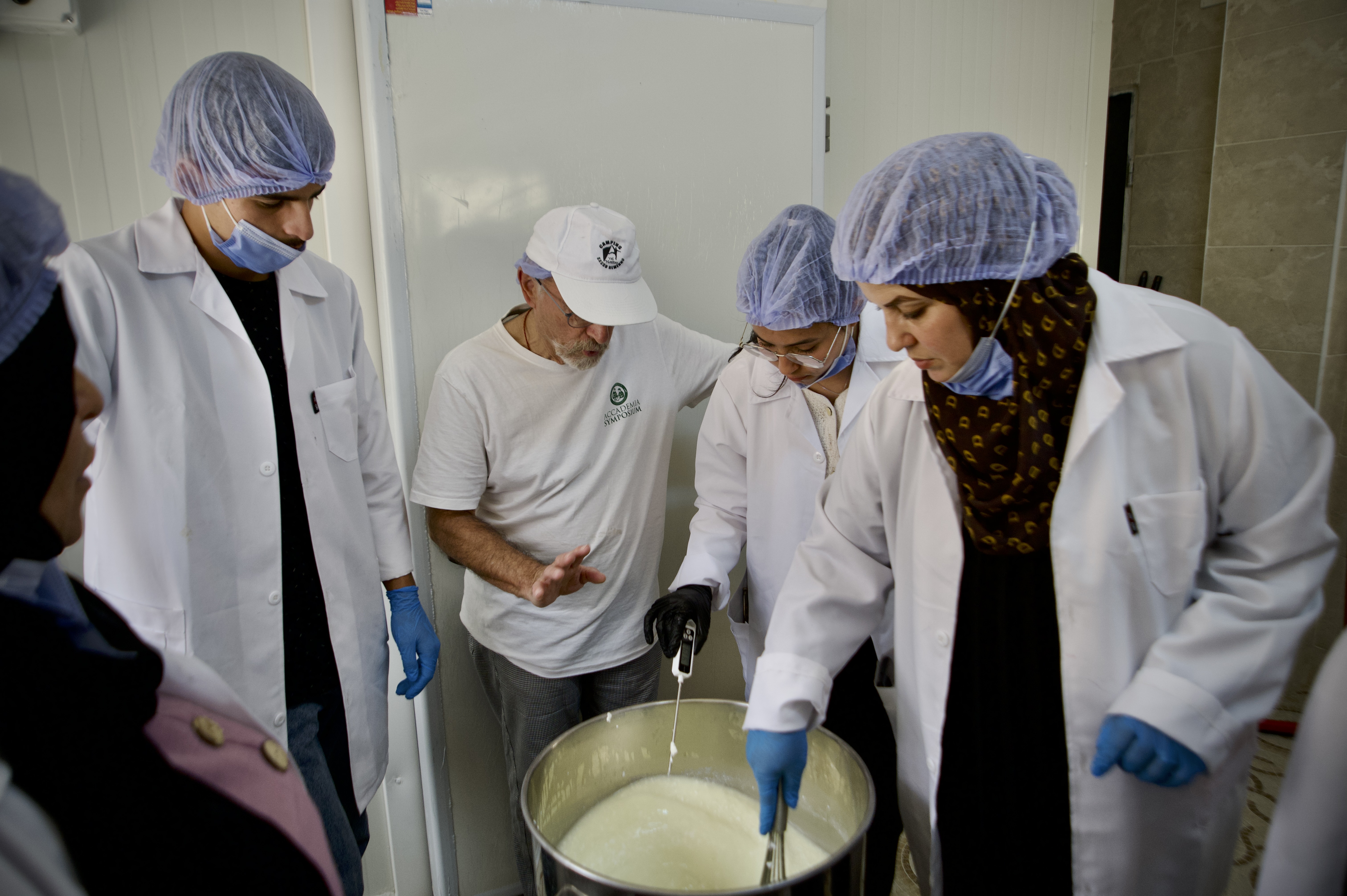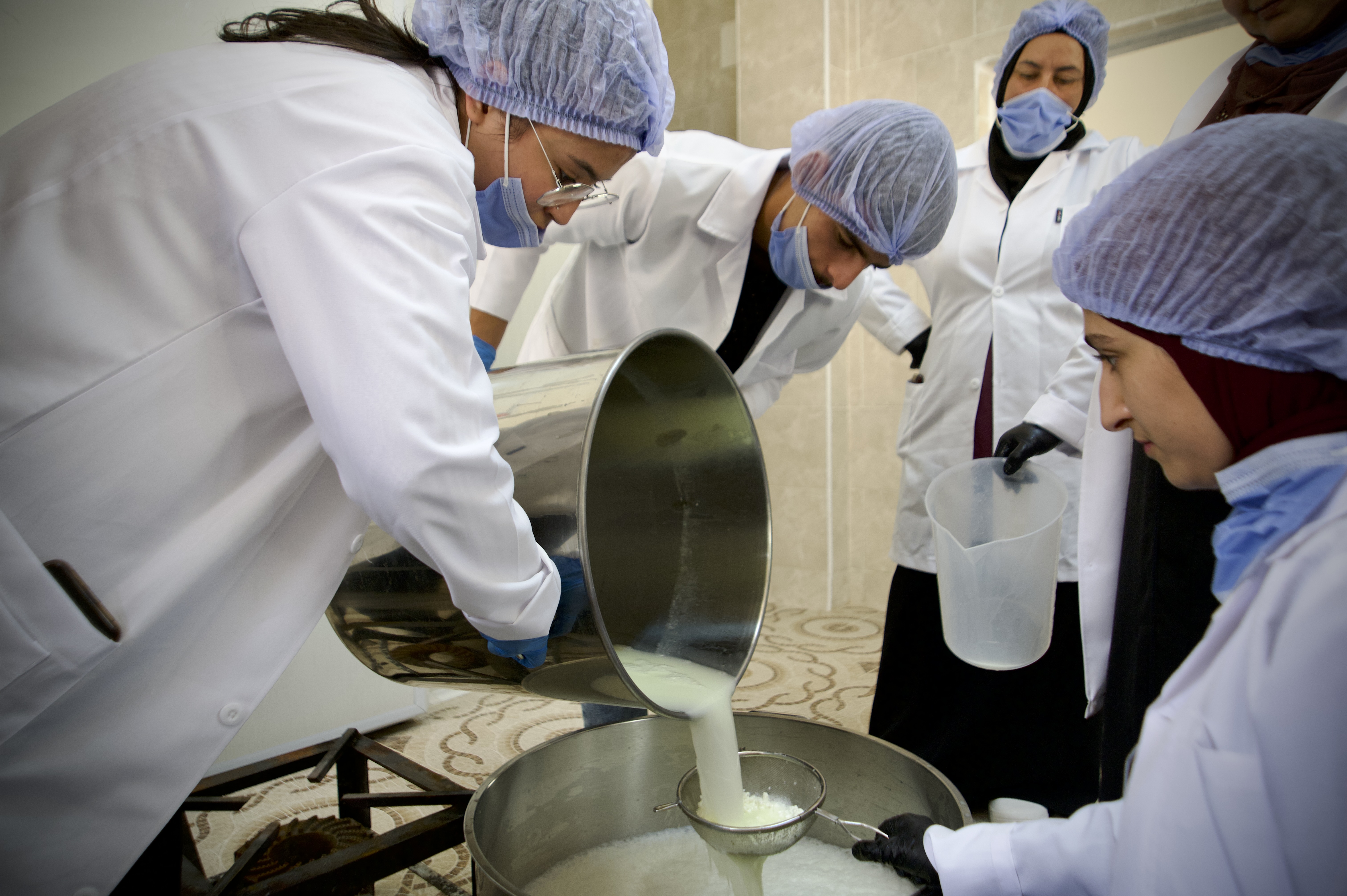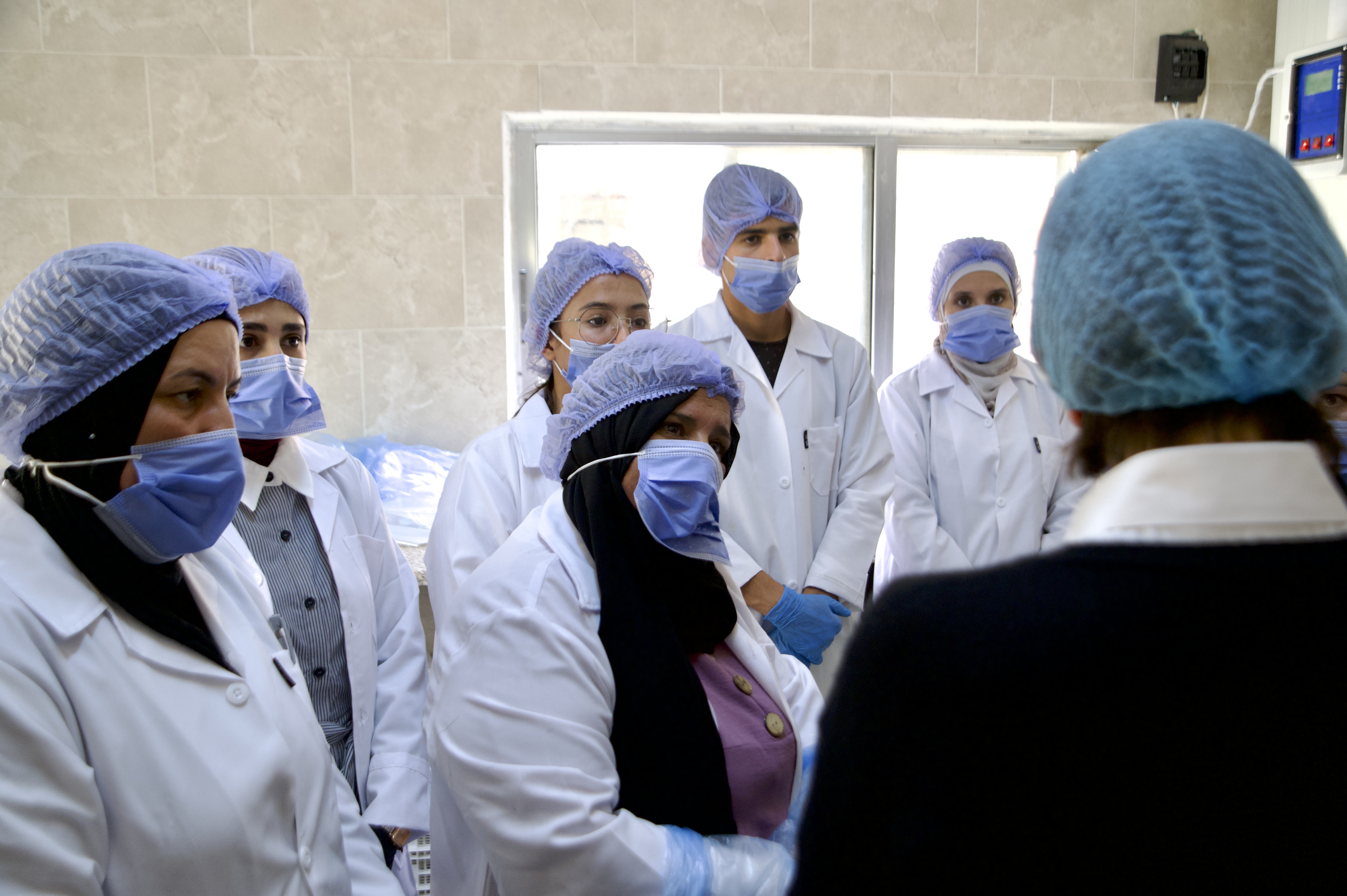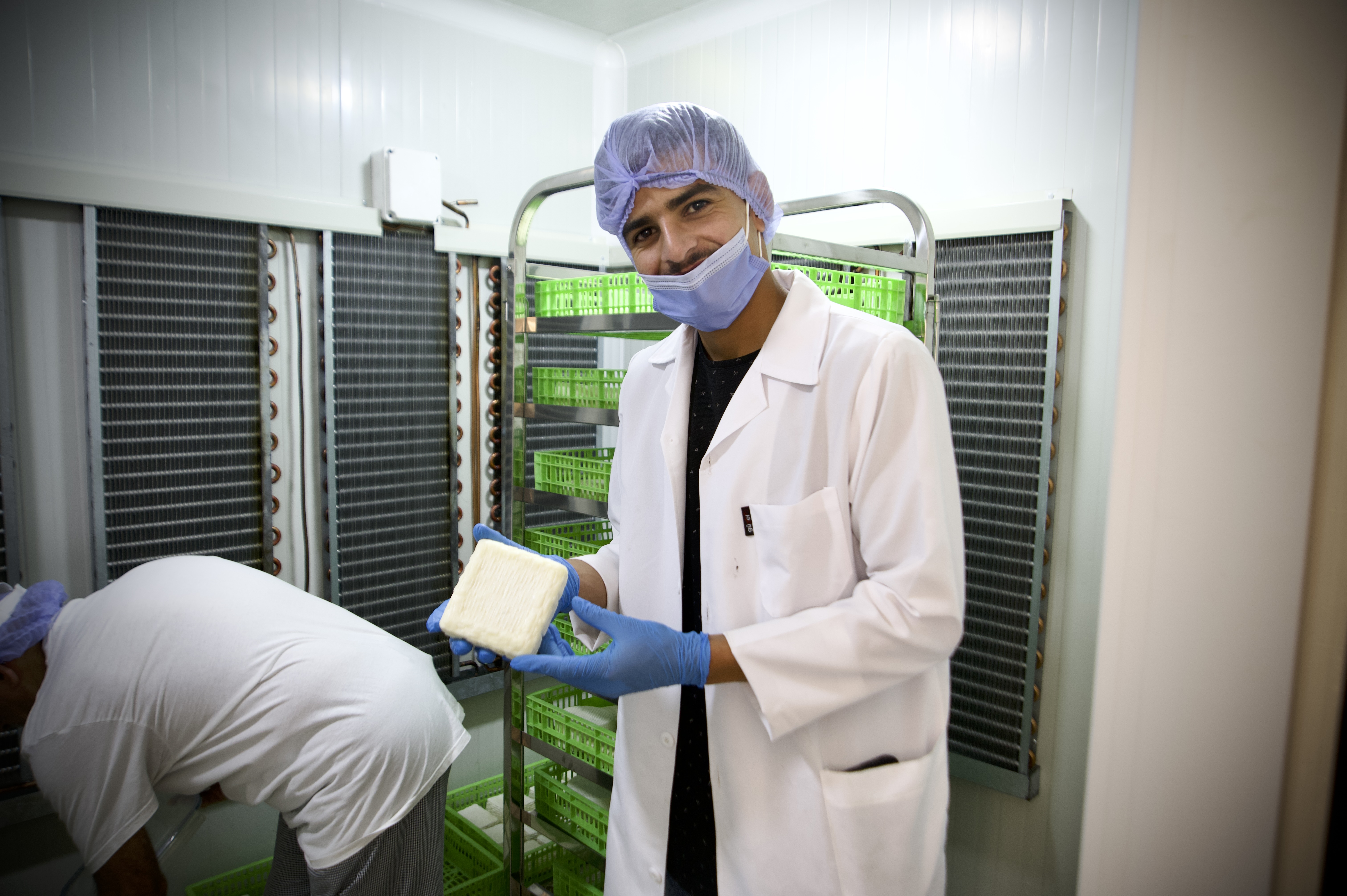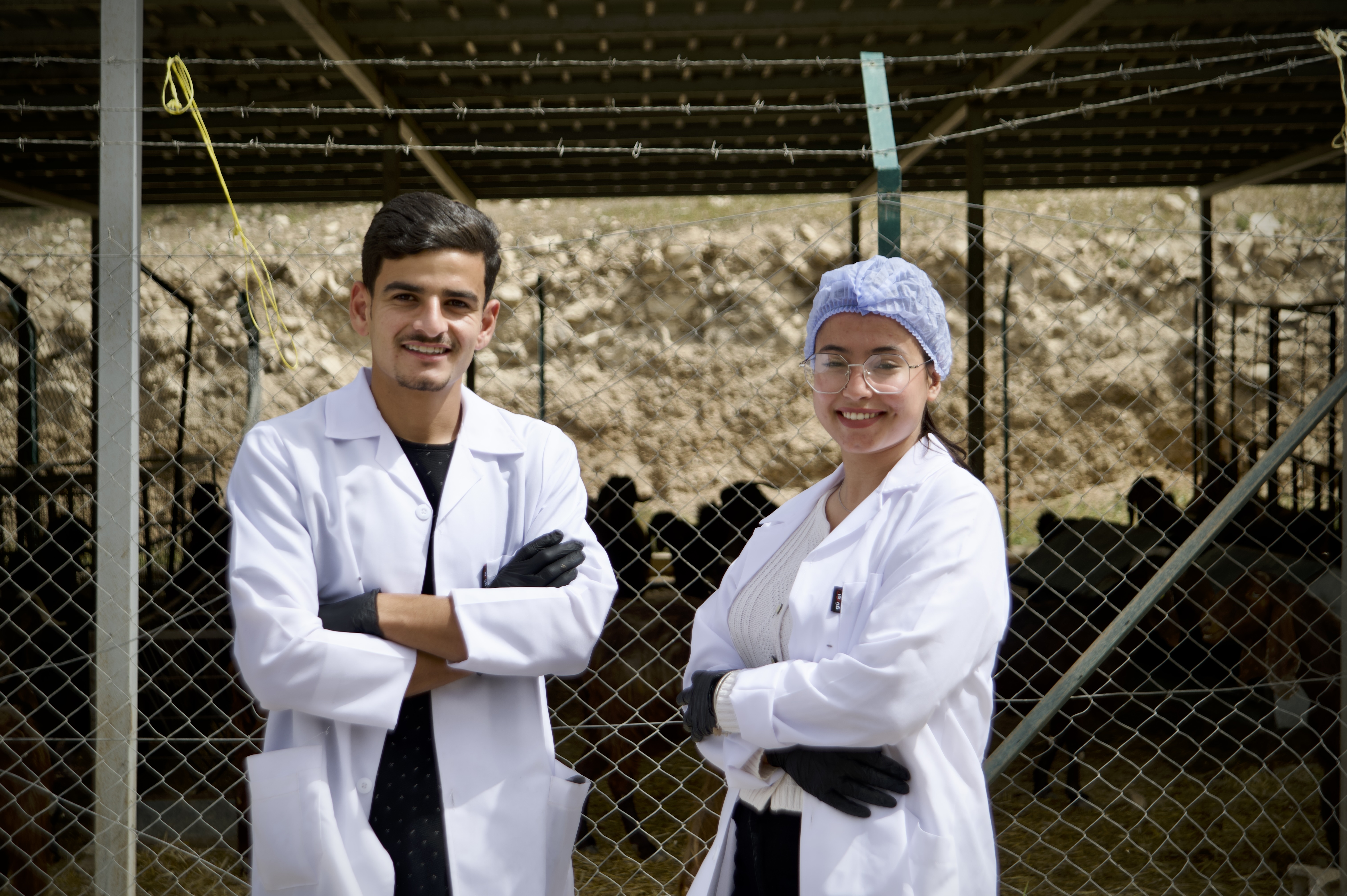Login
Signup
Empowering Local Women Through Italian Cheese Making at Wadi Al Walah Agricultural Station
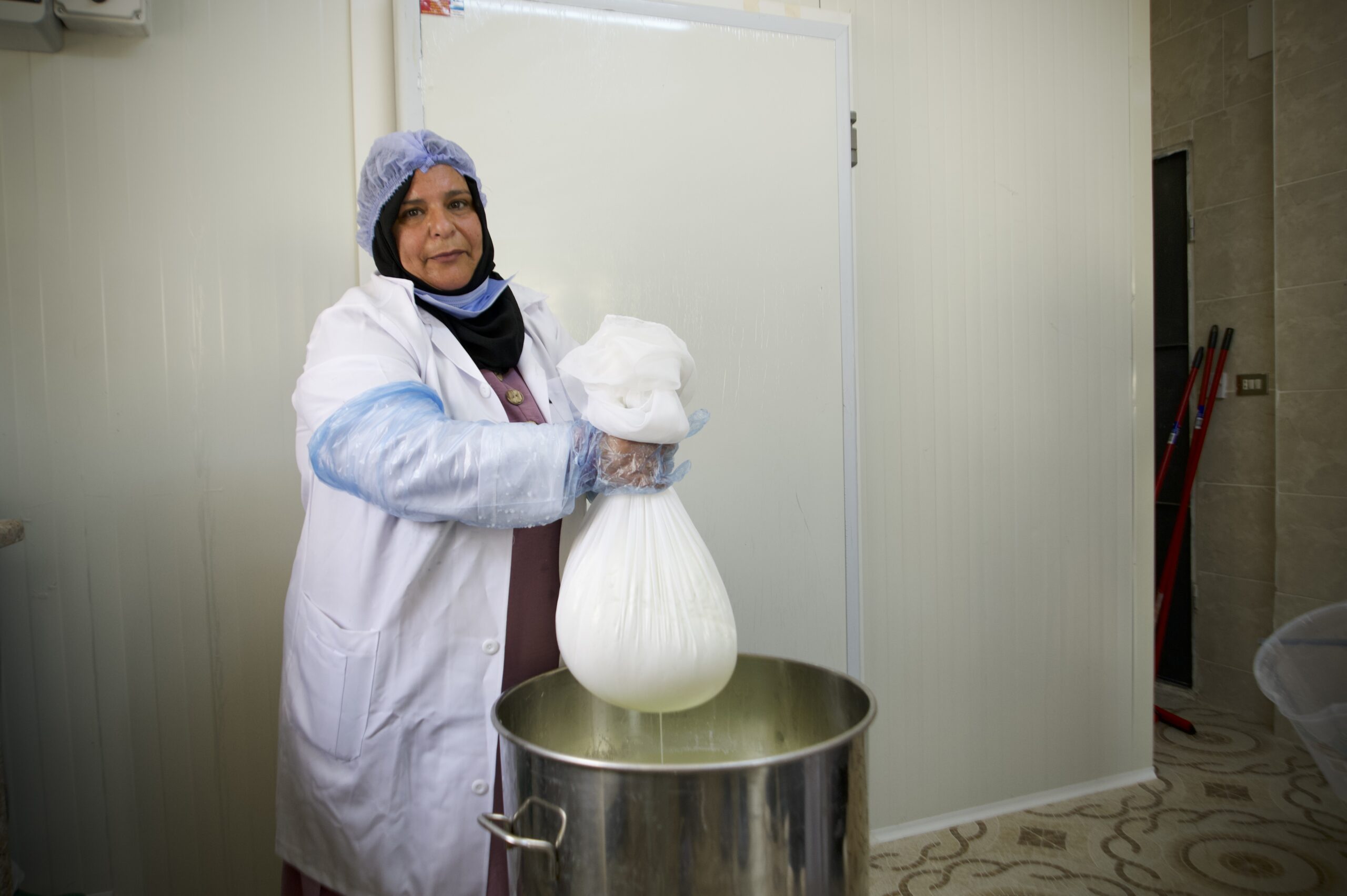
At the heart of Wadi Al Walah, Jordan, 16 local women have embarked on an extraordinary journey of empowerment, learning the ancient art of Italian cheese-making. Over the course of 10 intensive days, these women gained not just valuable technical skills but also a renewed sense of confidence and pride in their own potential. This was more than a training program; it was the beginning of new opportunities and possibilities.
The program, a collaboration between the Jordanian Ministry of Agriculture and the Habibi Association, brought in Fausto, a skilled Italian cheesemaker with decades of experience. With his hands full of passion for the craft, Fausto guided the women through every step of the process, from milking the goats to shaping the fresh cheese. As he spoke with infectious enthusiasm about the science behind cheese-making, his energy radiated through the group, igniting the same passion in the women, who listened intently, their curiosity piqued by his every word.
“When I see the goats, I feel like I’m home,” Fausto shared, his eyes lighting up as he gazed at the herd. His love for his craft was palpable, and it was clear to everyone in the room that this wasn’t just a job for him—it was a lifelong calling. His admiration for the goats, the milk, and the cheese-making process was contagious, sparking the same sense of wonder in the women who, for many, were experiencing this world for the first time.
The Wadi Al Walah Agricultural Station, surrounded by the serene beauty of olive trees, is a small yet bustling hub of activity. Here, 500 goats produce around 200 liters of fresh milk daily, which now serves as the foundation for the new Italian cheese-making line that these women are helping to create. The station, a humble yet lively place, operates almost like a small village, with its rustic charm and practical facilities all in close proximity. It’s a place where people work together, side by side, with a shared sense of purpose.
As the day began, Fausto would walk alongside the women, giving them hands-on guidance in the milking process. There is a special rhythm to the work, as each woman assists with the milking, using a pump that attaches to the goats to collect the fresh milk. Together, they move the milk from the tanks to the cheese-making facility, either by hand or using a truck. During this, Fausto would offer tips and share his expertise on everything from milk quality to bacteria control.
Once the milk was in the pasteurizer, Fausto continued his training. The room would fill with the sound of him explaining the intricacies of the milk’s properties, the science behind cheese-making, and how to maintain the highest standards of hygiene and safety. As the milk warmed and cooled in the pasteurizer, the women were rapt, eager to absorb every piece of knowledge.
The smell of the milk and the soon-to-be-made cheese filled the air, mingling with the light that poured into the spacious, clean room. The energy was palpable. The women, despite being surrounded by unfamiliar equipment and techniques, were completely absorbed in the process. Their faces glowed with pride as they worked the milk into cheese, shaping it into forms with their hands, their movements guided by Fausto’s expertise.
For many of these women, this was not just a technical skill; it was a lifeline. The ability to create high-quality cheese, using fresh, local ingredients, opened up opportunities for small-scale businesses, financial independence, and the chance to improve their families’ lives. The training was not just about cheese—it was about building resilience, creating new avenues for income, and strengthening the local economy.
“It’s amazing to see how quickly the women embraced the process,” said Fausto, his voice thick with admiration. “They’re not just learning to make cheese—they’re learning how to create something of their own, something they can be proud of.”
The women’s passion mirrored Fausto’s, and by the end of the 10 days, they were no longer just students. They were cheesemakers, each one capable of taking what they had learned and applying it to their own lives and communities. It was a transformative experience, one that would have lasting effects on their families and the broader community.
In a beautiful moment of camaraderie, the group came together for a shared meal, prepared by Mohammed, the station’s manager. The table was set with traditional Madaba dishes—Sajia (meat with vegetables), moutabel, hummus, and the ever-popular mansaf. As they ate together, the walls of language and cultural differences seemed to disappear. The women, Fausto, and the station’s team exchanged stories, laughter, and dreams for the future.
The visit from the Ministry of Agriculture and Tourism further solidified the success of the program. The delegation, keenly interested in the project, toured the facilities and expressed support for the initiative. It was a powerful reminder of how, through collaboration, transformative change is possible.
Looking ahead, the potential for this project is enormous. With the infrastructure in place—thanks to investments from the Habibi Association—Wadi Al Walah is poised to become a center for local cheese production, supplying local markets, specialty stores, and even regional restaurants. Plans for seasonal employment and continuous support from Italian experts will ensure that this initiative grows, benefiting not only the women involved but the community as a whole.
The Wadi Al Walah Agricultural Station is more than just a farm. It’s a place of learning, growth, and empowerment. It’s where women are not just taught how to make cheese—they’re given the tools to change their futures, one wheel of cheese at a time.
As the goats wander through the fields, their bleats mingling with the sounds of hard work and laughter, it’s clear that this project is not just changing the lives of the women who participated. It’s creating a ripple effect of change, strengthening the entire community and showing the world that when people work together, they can create something truly extraordinary.
